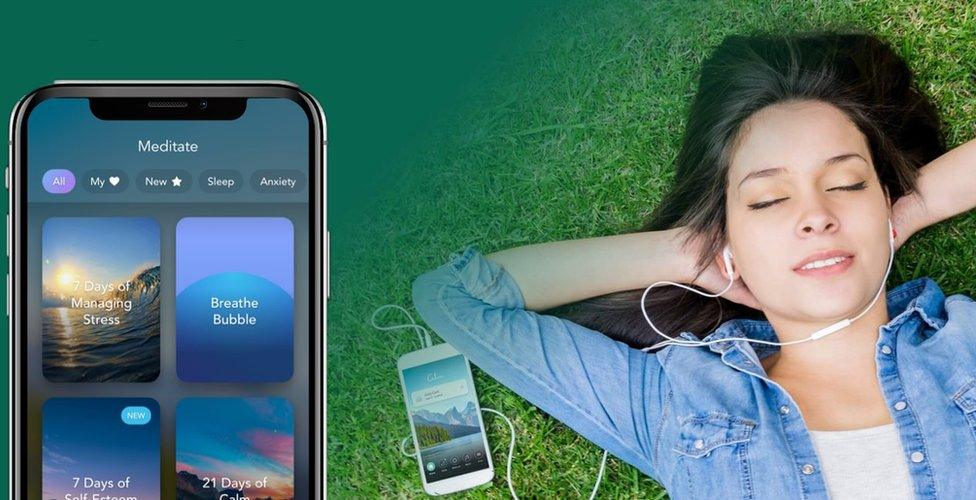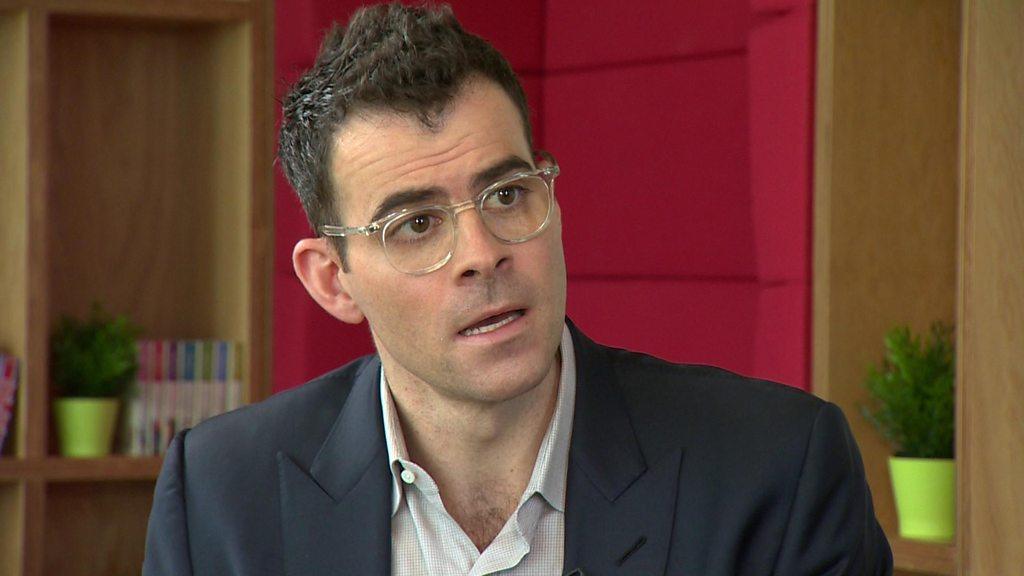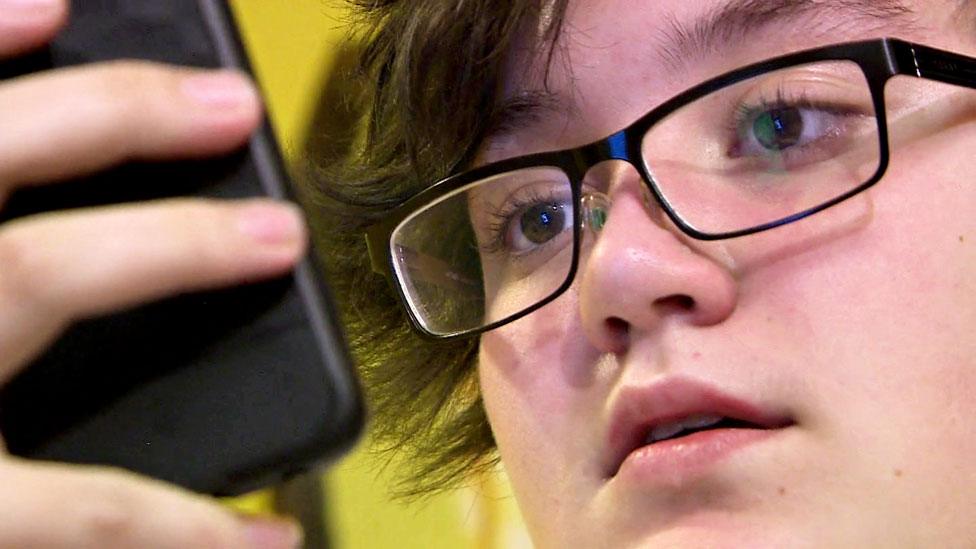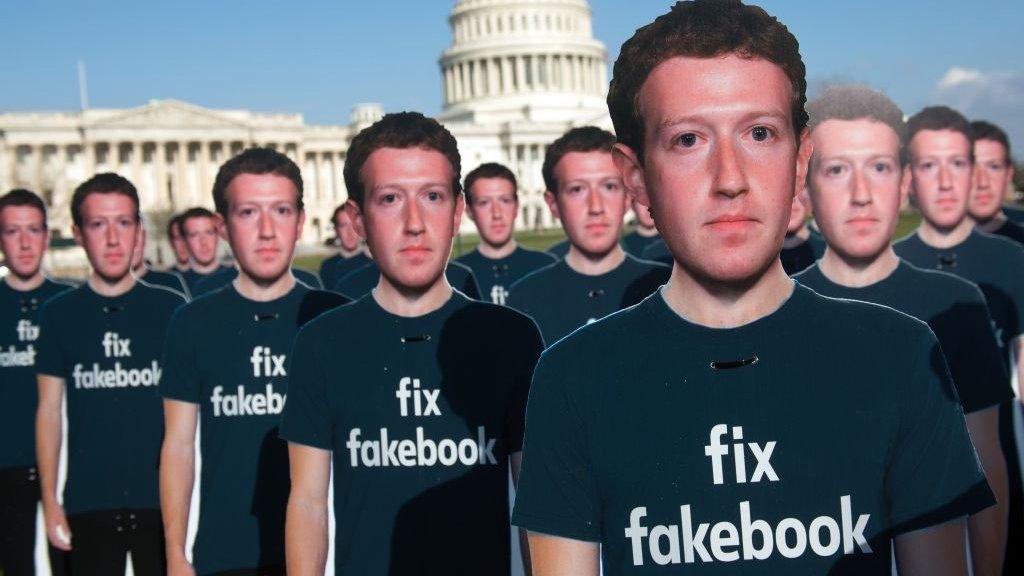Tech Tent: Is the internet bad for us?
- Published

After Molly Russell died, her family discovered distressing material about suicide on her Instagram account
From encouraging suicide to giving young people an unhealthy addiction to staring at smartphones, digital technology has been accused in recent days of doing more harm than good.
On Tech Tent we explore the impact of the internet on our mental health - and meet two people with different solutions for dealing with stress.

Stream the latest Tech Tent, external podcast
In the UK this week the harmful effects of social media have been highlighted by the case of 14-year-old Molly Russell, who took her own life in 2017.
Her father believes the graphic images of self-harm she saw on Instagram and other social media sites helped kill his daughter.
After mounting pressure to act, Instagram - which is owned by Facebook - now says it will remove graphic self-harm images. Its boss Adam Mosseri said some material in which people related their experiences of recovery would remain but would be harder to find.
The other debate has been about the harmful effects of spending too long staring at smartphones and other devices. There was government advice on the issue of screen time this week from the UK's four chief medical officers, including England's Sally Davies.
She admitted there was little academic research on whether excessive time looking at screens was harmful but had a few simple rules. Children should not spend more than two hours at a time on screens and should not be allowed to take phones to bed. As for adults, they should set a good example by putting their phones away at mealtimes.

The Calm app teaches users how to meditate and get more restful sleep
But Cal Newport thinks we all need to rethink our relationship with our devices. His new book Digital Minimalism is all about making technology work for you and not the other way round.
His first tip is to clean up your smartphone: "Take off your phone any app where someone makes money when you click on it. What you have then lost is the ability for these companies to try to snag your time and attention at every piece of downtime, at every piece of potential solitude."
When I suggest this is too radical a step and involves wiping out most internet activity he reassures me that it is fine to use these apps on a desktop computer - it is our addiction to smartphones that is the problem. He says we've become like emergency services dispatchers, constantly taking in information and posting our thoughts.
"It's this constant companion model of smartphone use which is really quite new and benefits the corporate bottom line more than it benefits anyone's actual technological lives," he says.
Michael Acton Smith has a solution to dealing with the stress of modern life - a smartphone app. This week his mindfulness business Calm achieved unicorn status - a valuation of a billion dollars - with investors convinced that paying for meditation and insomnia tips is the next big thing.
He accepts there is an irony in using smartphones to improve mental health but says the technology isn't the problem: "They are tools, very, very powerful tools and we can use them in positive ways or negative ways. What mindfulness does is make us a little more aware, a little more conscious of how we use these devices."
He believes the benefits of smartphones outweigh their negative aspects. Cal Newport, who has decided he can manage his life as a computer science academic and author without having any social media accounts, is more cautious.
Mr Newport does have an old iPhone but says he spends large parts of his day away from it: "If there's something I really care about that tech can help with I'll deploy it. But I'm not going to let the technology change what the actual rhythm of my life is."
As someone whose daily rhythm now involves checking social media on his phone on waking and last thing at night, that is a message I need to take on board. But bringing digital minimalism into my life is going to be quite a challenge.

Stream the latest Tech Tent, external podcast
Related topics
- Published7 February 2019

- Published31 January 2019

- Published12 February 2020

